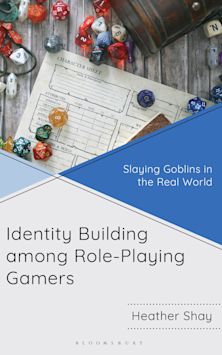- Home
- ACADEMIC
- Sociology
- Sociology - Other
- Intercountry Adoptees Tell Their Stories
Intercountry Adoptees Tell Their Stories
Intercountry Adoptees Tell Their Stories
This product is usually dispatched within 3 days
- Delivery and returns info
-
Free US delivery on orders $35 or over
You must sign in to add this item to your wishlist. Please sign in or create an account
Description
Intercountry Adoptees Tell Their Stories reflects the thoughts and experiences of adult transracial adoptees. The authors conducted in-depth interviews in order to understand and examine the adoptees. The authors conducted in-depth interviews in order to understand and examine the adoptees' attitudes towards identity, culture, race, and parenting within a multicultural household. The men and women interviewed in this study offer the readers a detailed and personal glimpse into their worlds. They represent a range of positive and negative adoption stories and describe the complexities of ethnic identity formation. Each experience related in this volume is unique not only in demographic characteristics, but in the journey each participant has undertaken in his or her transition to adulthood and identity formation. What emerges from the interviews is a broad collection of voices speaking out from all corners of the country about their adoption.
Table of Contents
Part 2 Intercountry Adoption
Part 3 Introduction to Interviews
Part 4 Interviews
Chapter 5 Korean
Chapter 6 Vietnamese
Chapter 7 Hispanic-Latino
Chapter 8 USA: African American
Chapter 9 USA: Caucasian
Part 10 Summary and Concluding Remarks
Product details
| Published | Mar 05 2007 |
|---|---|
| Format | Paperback |
| Edition | 1st |
| Extent | 350 |
| ISBN | 9780739118566 |
| Imprint | Lexington Books |
| Dimensions | 9 x 6 inches |
| Publisher | Bloomsbury Publishing |
About the contributors
Reviews
-
Worth reading.
Lynn Baxter, Greenwich University, H-Net: Humanities and Social Science Reviews Online
-
Intercountry Adoptees Tell Their Stories includes fascinating interviews with adult African-American, Asian, Hispanic and white interracial adoptees born in many parts of the world including the U.S. The in-depth interviews speak for themselves revealing how being interracially adopted has effected these individual's perceptions of themselves as men and women, how they see their adopted and birth families, and how their multi-racial experiences coincides within a world often defined in racial terms. For a family thinking about interracial adoption, this is a 'must read.'
Howard Altstein, University of Maryland School of Social Work


































